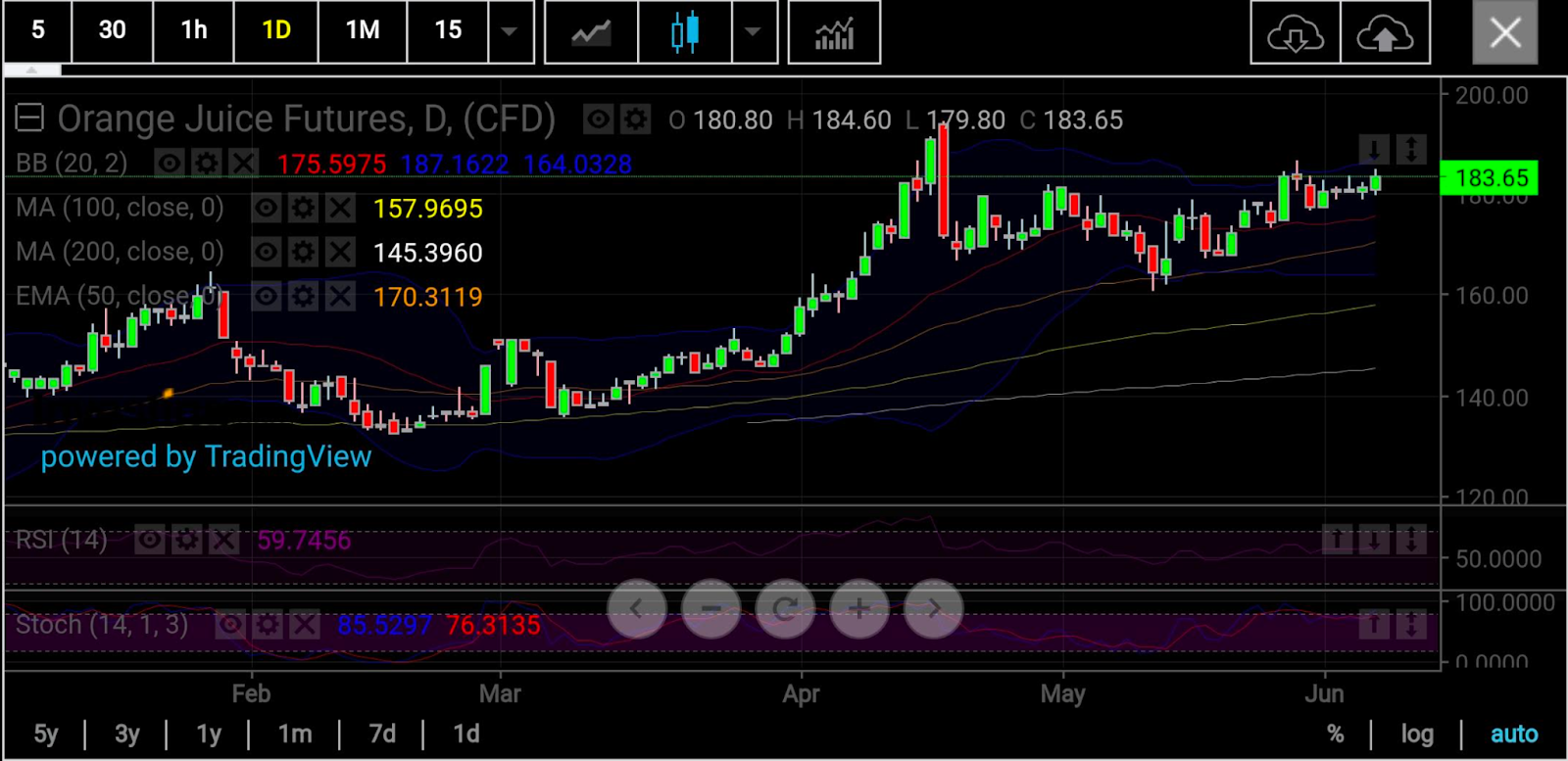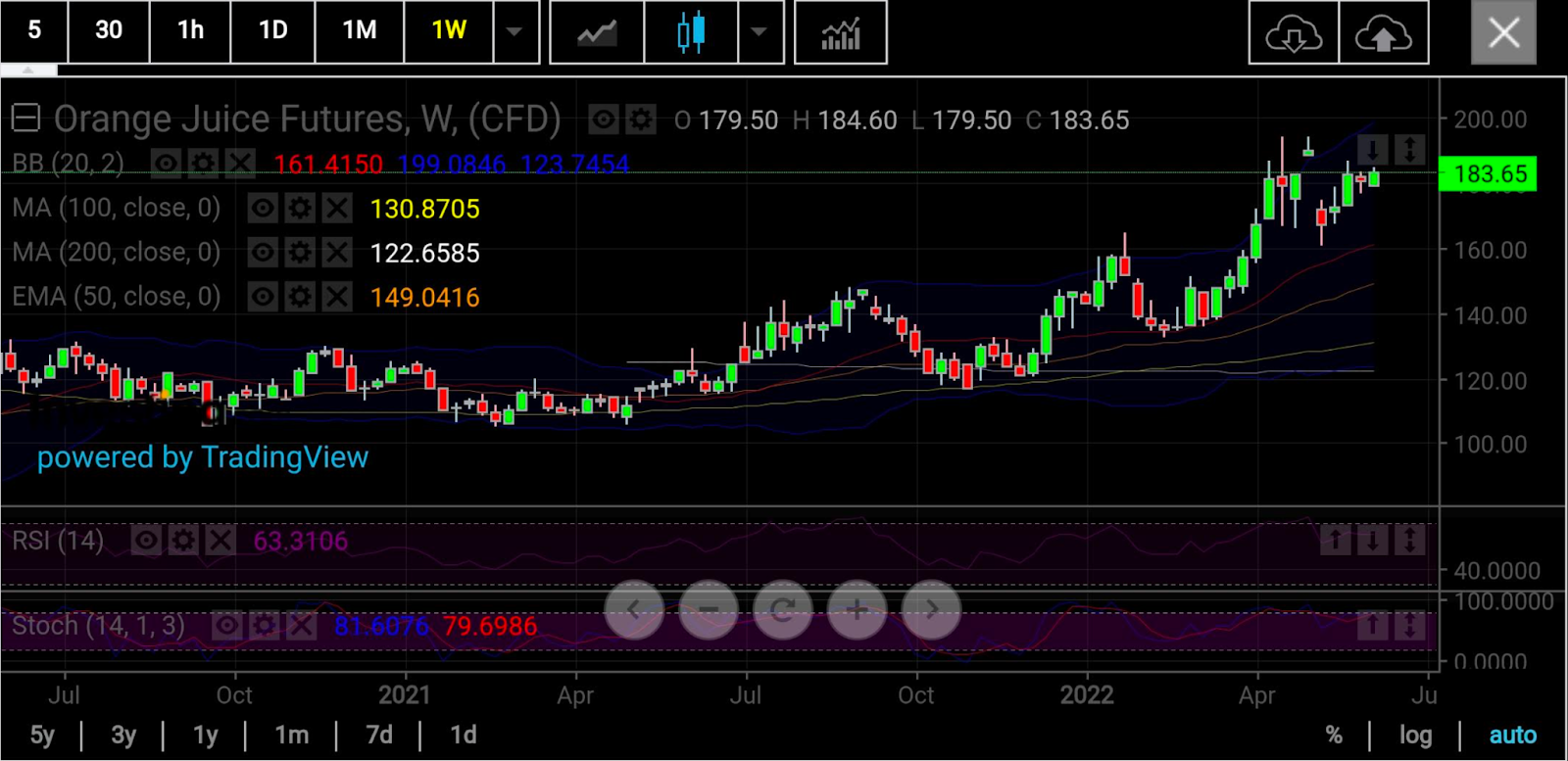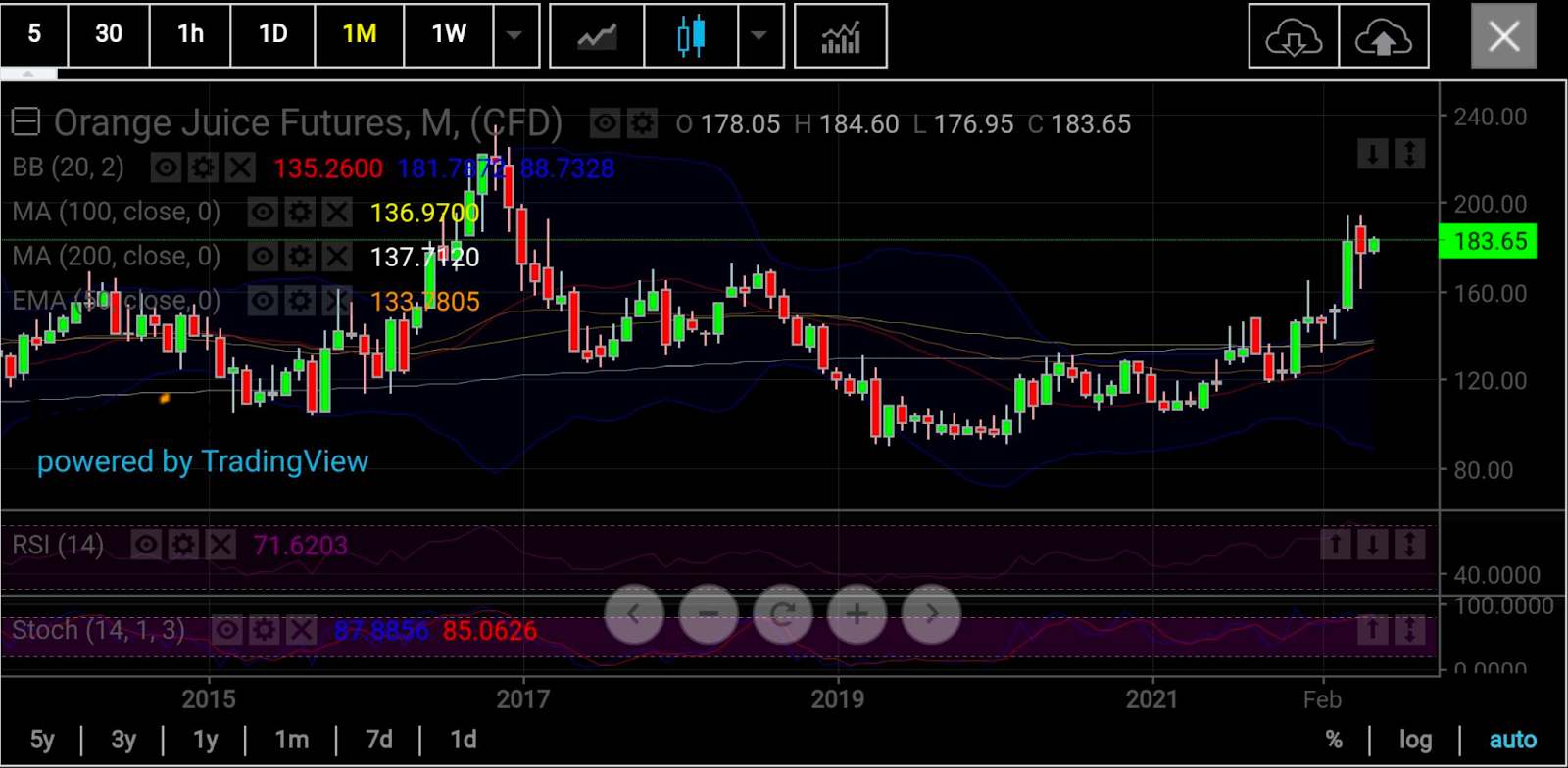Orange juice futures may be poised to return to five-year highs as another hyperactive hurricane season looks set to start in the Atlantic Ocean, adding pressure to the orange crop in Florida—the largest grower of the commodity in the United States.
“The market is short oranges and short juice production” Jack Scoville, chief crop analyst at PRICE Futures Group in Chicago, said in a note seen by Investing.com on Tuesday.
As one of America’s breakfast staples—along with eggs, cereal, milk, and sausages—orange juice has contributed to this year’s food inflation, with supermarket prices for the beverage rising by just over 7% in the year to March to reach $7.88 a gallon, according to Nielsen research.
Futures of frozen concentrated orange juice (FCOJ) hovered at $1.84 a pound ahead of Wednesday’s open on New York’s Intercontinental Exchange. A week into June, the market was up 4%, recouping all of May’s 2.8% drop.

All charts courtesy of skcharting.com
FCOJ had rallied 25% in two months prior to that, hitting a five-year high of $1.94 on Apr. 19.
Now, it could reprise those highs and beyond as chart action combines with a devastating disease in Florida called citrus greening that damages oranges and kills the trees they grow on.
Florida's oranges have been on the decline for more than two decades, Bloomberg noted in a crop roundup last week.
To make matters, since 2017, Florida has been hit by eight hurricanes and tropical storms. The average year has 14 storms named, which happens when their winds reach tropical-storm strength of 39 miles (63 kilometers) per hour.
For this year, the US National Weather Service is forecasting 14 to 21 named storms to spin across the Atlantic during the six-month season that starts June 1.

The outlook is the latest from academic and commercial sources pointing to an overactive year across the basin. Among the others, Colorado State University, which pioneered seasonal forecasts, called for 19 storms, while AccuWeather has estimated 16 to 20.
For now, Florida’s orange production is stable though on the decline.
“Weather conditions in Florida are rated mostly good for the crops with some showers and warm temperatures,” said Scoville of PRICE Futures Group.
To be sure, citrus crops in the state have avoided the kind of direct strike that can tear trees out of the ground, said Don Keeney, a meteorologist with Maxar Technologies.
But Florida’s production has still shrunk to less than one-fifth of what it was at the beginning of the century and planted acreage is a smaller portion of what it was at its peak.
Florida’s crop problems, coupled with production issues in top grower Brazil, have sent orange juice futures up 43% in New York over the past year. Prices could breach $2 and beyond if there should be a big hurricane hit, said Andres Padilla, an analyst at Rabobank International.
“The greening disease has taken its toll on the US crop and the previous Brazil crop was down significantly due to drought,” said Scoville.
He added:
“The weather remains generally good for production around the world for the next crop. Brazil has some rain and conditions are rated good, but it is drier now and some trees are developing stress.”

All this is, of course, before the onset of bullish technical conditions that could spur juice prices even higher, said Sunil Kumar Dixit, chief technical strategist at skcharting.com.
FCOJ has formed a strong base above the $1.40 horizontal area on its monthly chart due to a bullish confluence of major Simple Moving Averages (SMAs) formed by the 100-day SMA, 200 SMA, and 50 EMA.
Weekly stochastic parameters with a reading of 81/79 and monthly reading of 87/85 were also supportive of FCOJ’s upside momentum, said Dixit.
“For short-term perspective, orange juice is trading in a $35 range of $1.95-$1.60,” he said.
“Prices need to rise above $1.95 for continuation of the bullish wave, which has targets of $2.00-$2.20-$2.40, failing which juice can retrace down to $1.70 and $1.60.”
A decisive close beneath the $1.70-$1.60 range can start a further slide, pushing the market toward the $1.40-$1.30 horizontal support areas, Dixit said. Adding:
“To be sure, there’s a long-term monthly chart showing an emerging rounding bottom formation in FCOJ taking shape, which may cause a pull back towards the $1.40-$1.30 levels and eventually start heading upwards towards $2.00-$2.20-$2.40 over an extended period of time.”
“Here it is very important to understand that such macro formations on long time frames are indicative of a huge energy build up in the future, once the initial measured move of the formation is established.”
Disclaimer: Barani Krishnan uses a range of views outside his own to bring diversity to his analysis of any market. For neutrality, he sometimes presents contrarian views and market variables. He does not hold positions in the commodities and securities he writes about.
